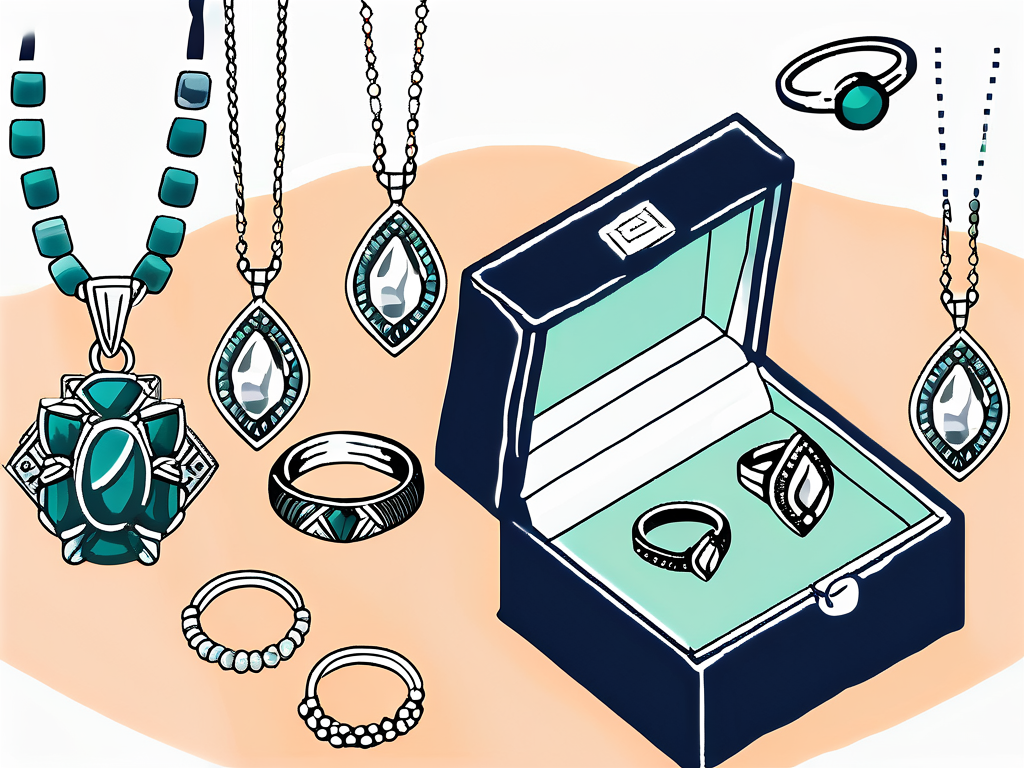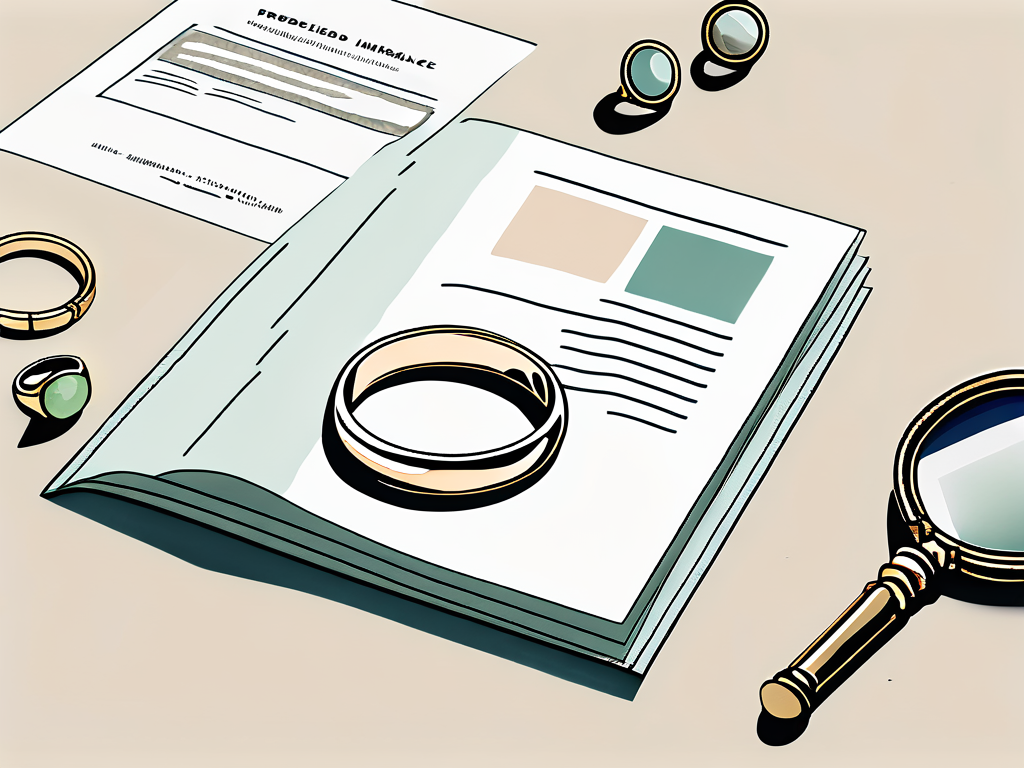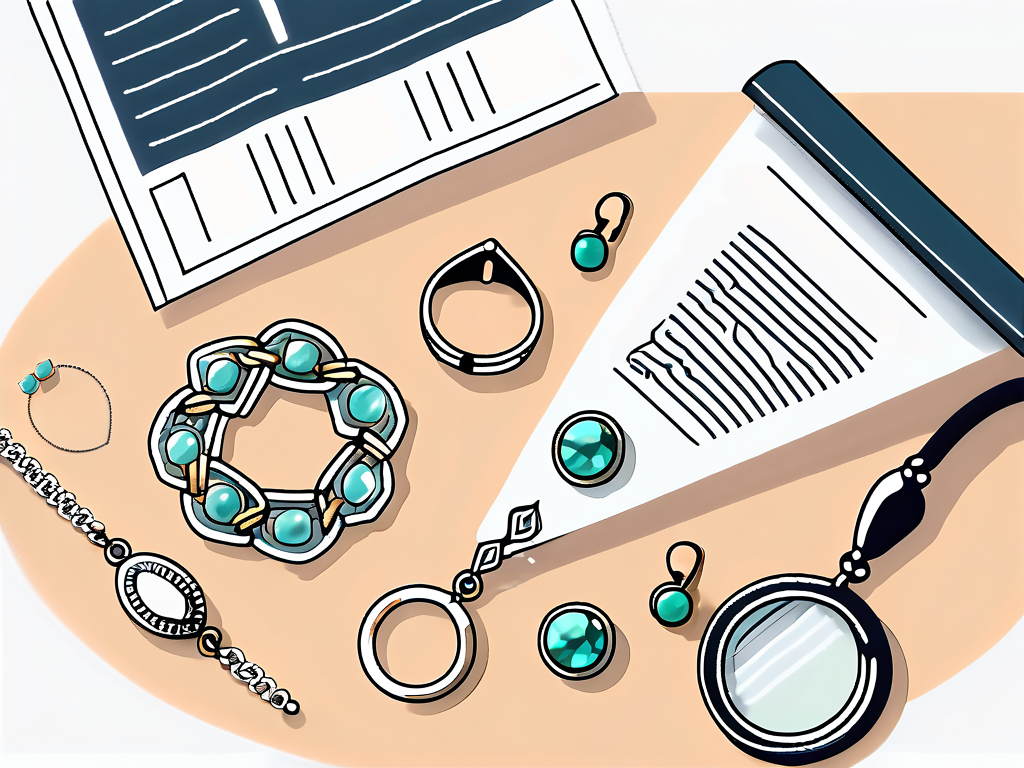Jewelry is not only a fashion statement, but it can also hold sentimental value or be a significant investment. It’s important to protect your valuable pieces with jewelry insurance. This article will guide you through understanding the importance of jewelry insurance, the different types available, factors to consider when choosing a policy, how to file a claim, and answer frequently asked questions about jewelry insurance.
Understanding the Importance of Jewelry Insurance
Jewelry insurance provides peace of mind by protecting your precious pieces against loss, damage, theft, or other unfortunate events. While some homeowners or renters insurance policies may offer limited coverage for jewelry, they usually have lower coverage limits and may not cover all types of losses. Therefore, having specialized jewelry insurance is crucial to ensure comprehensive protection.
Why You Need Jewelry Insurance
There are several reasons why jewelry insurance is essential. Firstly, it provides financial protection in the event of loss, theft, or damage to your jewelry. Without insurance, you may have to bear the entire cost of replacement or repair, which can be substantial.
Secondly, jewelry insurance offers coverage specific to jewelry, which means it can provide additional benefits and more extensive coverage than a standard homeowners or renters insurance policy. This specialized coverage includes protection against accidental damage, mysterious disappearances, and even worldwide coverage.
The Risks of Not Insuring Your Jewelry
Choosing not to insure your valuable jewelry can put you at significant risk. Imagine losing a beloved family heirloom or having your engagement ring stolen without any way to recoup its value. Without insurance, you may face financial strain in replacing or repairing the jewelry, potentially leading to an emotional and financial loss.
Additionally, jewelry is vulnerable to certain risks and accidents. You may accidentally drop a necklace down the sink drain or misplace your bracelet while traveling. Insuring your jewelry provides protection against unexpected events that may occur in your day-to-day life.
Furthermore, jewelry insurance not only covers the monetary value of your pieces but also takes into account their sentimental value. This means that if you have a piece of jewelry that holds great emotional significance, such as a wedding ring or a family heirloom, insurance can help you replace it or compensate you for its loss.
Moreover, specialized jewelry insurance often offers additional services that can be invaluable in times of need. For example, some policies provide access to expert appraisers who can accurately determine the value of your jewelry, ensuring that you receive fair compensation in the event of a claim. Others may offer assistance with finding reputable jewelers for repairs or replacements.
Lastly, it’s important to note that jewelry insurance can provide coverage even when you’re traveling. Whether you’re on a vacation or a business trip, having insurance for your jewelry ensures that you’re protected against loss, theft, or damage no matter where you are in the world. This global coverage allows you to enjoy your travels without worrying about the safety of your precious pieces.
Types of Jewelry Insurance
When it comes to jewelry insurance, there are different types of policies available to suit your specific needs and preferences. Understanding the differences between these policies can help you choose the right one for your valuable pieces.

Investing in jewelry insurance is a smart decision to protect your precious belongings from unforeseen circumstances. Whether it’s a family heirloom passed down through generations or a recent purchase to mark a special occasion, having the right insurance can provide you with peace of mind.
Replacement Insurance
Replacement insurance guarantees that you will receive a new piece of jewelry of similar quality and value if your original piece is damaged, lost, or stolen. This type of policy is ideal if sentimental value is more important to you than receiving a cash payout.
Imagine the relief of knowing that even if your favorite necklace goes missing or is damaged beyond repair, you can have an identical or comparable piece to cherish once again. Replacement insurance ensures that your jewelry collection remains intact, both emotionally and physically.
Actual Cash Value Insurance
Actual cash value insurance takes into account depreciation when determining the value of your jewelry. If a loss occurs, you will receive a payout based on the current market value of the item. While this policy may offer a lower premium, it may not be suitable for those looking to replace high-value or sentimental pieces.
For those who prioritize practicality and cost-effectiveness, actual cash value insurance provides a realistic approach to jewelry protection. By considering the wear and tear of your items over time, this policy ensures that you receive a fair reimbursement reflective of the current market conditions.
Agreed Value Insurance
Agreed value insurance ensures that you receive the amount stated on your policy if your jewelry is lost, stolen, or damaged. This policy type is most suitable for unique, rare, or high-value pieces, as it eliminates any uncertainty regarding the payout amount.
Owning one-of-a-kind jewelry pieces can be a source of pride and joy, but it also comes with the responsibility of safeguarding them adequately. Agreed value insurance offers a sense of security by establishing a predetermined value for your jewelry, guaranteeing that you are fully compensated in the event of a loss. This type of policy is a valuable asset for collectors and individuals with exceptional pieces in their possession.
What to Consider When Choosing a Jewelry Insurance Policy
Before selecting a jewelry insurance policy, there are several crucial factors to consider to ensure you make an informed decision. Protecting your valuable jewelry requires careful consideration and understanding of the insurance coverage you are investing in.

One important aspect to look into is the reputation and financial stability of the insurance provider. It is essential to choose a reputable company with a history of honoring claims and providing excellent customer service. Researching reviews and ratings from other policyholders can give you valuable insights into the insurer’s reliability.
Coverage Limitations and Exclusions
Review the policy’s coverage limitations and exclusions to understand what is and isn’t covered. Some policies may have specific restrictions on certain types of jewelry or activities, such as extreme sports or international travel. Ensure that the policy aligns with your needs and lifestyle. Additionally, inquire about coverage for mysterious disappearance or loss, as some policies may not cover these scenarios.
Deductibles and Premiums
Take note of the deductible and premium amounts. The deductible is the amount you need to pay before the insurance coverage kicks in, while the premium is the recurring fee you pay for insurance. Consider how much you are willing to pay in deductibles and premiums, balancing between affordable payments and adequate coverage. Some insurers offer options for flexible deductibles and payment plans to suit your financial preferences.
Appraisal Requirements
Many insurance policies require jewelry appraisals to determine the value of your pieces. Understand the appraisal requirements, such as how often appraisals need to be updated and whether they must be performed by a certified gemologist or appraiser. Keep detailed records of your jewelry, including purchase receipts, certificates, and photographs, to streamline the appraisal process and ensure accurate valuation.
How to File a Jewelry Insurance Claim
In the unfortunate event that you need to file a jewelry insurance claim, it’s important to follow the proper steps to ensure a smooth process.
One crucial aspect to keep in mind when filing a jewelry insurance claim is to review your insurance policy thoroughly. Understanding the coverage limits, deductibles, and any specific requirements related to jewelry claims can help streamline the process. Familiarize yourself with the terms and conditions of your policy to avoid any surprises during the claim process.
Steps to Filing a Claim
Contact your insurance provider as soon as possible to report the loss, theft, or damage. They will guide you through the necessary steps, which may include providing documentation such as police reports, receipts, or photographs. Be prepared to provide any requested information to support your claim.
Additionally, it’s advisable to keep a detailed inventory of your jewelry collection. Having records of your pieces, including descriptions, photographs, and appraisals, can expedite the claims process in case of loss or damage. Regularly updating this inventory can also help ensure that your coverage accurately reflects the value of your jewelry.
What to Expect During the Claim Process
During the jewelry insurance claim process, you may need to provide additional information or documentation. Your insurance provider will assess the value of your lost or damaged jewelry and work with you towards a resolution. It’s important to be patient and responsive throughout the process to ensure a fair and efficient settlement.
Moreover, understanding the valuation methods used by insurance companies for jewelry can be beneficial. Insurance companies typically assess jewelry based on factors such as market value, replacement cost, or agreed value. Being aware of how your jewelry’s value is determined can help you navigate discussions with your insurer and ensure a satisfactory outcome.
Frequently Asked Questions About Jewelry Insurance
Is Jewelry Insurance Worth It?
Yes, jewelry insurance is worth it, particularly for high-value or sentimental pieces. The peace of mind that comes with comprehensive coverage and the ability to protect your investment is invaluable.

How Much Does Jewelry Insurance Cost?
The cost of jewelry insurance varies depending on factors such as the value of the jewelry, the type of coverage selected, your location, and deductibles. It’s best to request quotes from insurance providers to get an accurate estimate tailored to your specific needs.
Can All Types of Jewelry Be Insured?
While most types of jewelry can be insured, there may be certain limitations or exclusions depending on the insurance provider. Common exclusions may include extremely rare or irreplaceable items, jewelry used for professional purposes, or jewelry with a history of unreliability or frequent damage.
By understanding the importance of jewelry insurance, the different types of policies available, factors to consider when selecting a policy, and the claims process, you can make an informed decision to protect your valuable jewelry and enjoy peace of mind for years to come.
